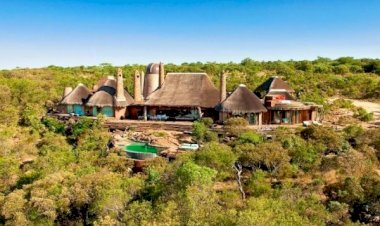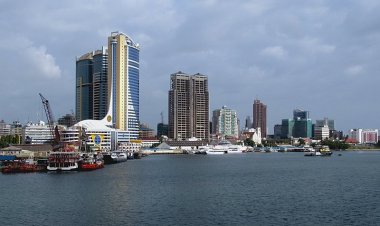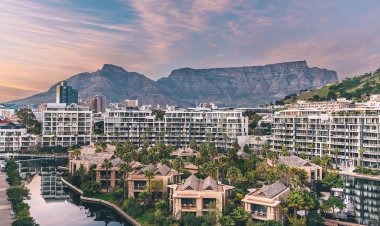Urgent Call for Green Buildings in African Cities to Tackle Climate Challenges
Architects must be involved early in planning and policymaking on construction matters to ensure alignment with principles that ensure safety, sustainable energy consumption, and the ability to withstand harsh weather conditions.
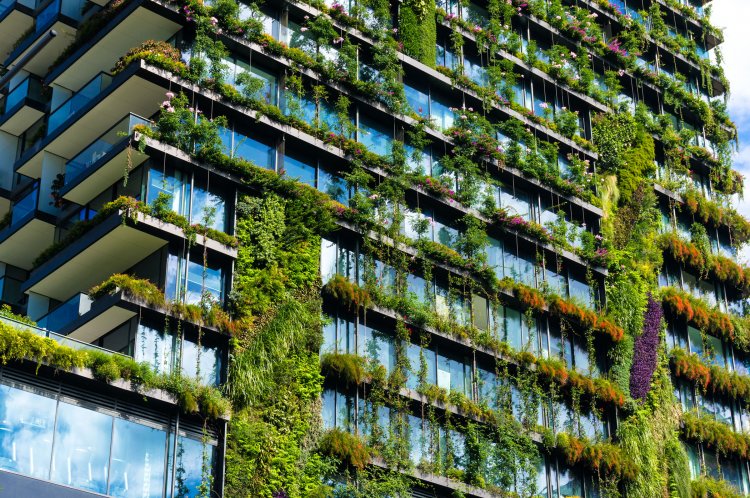
In the face of escalating climate challenges, the need to construct resilient structures has become increasingly vital, particularly in regions vulnerable to the impacts of climate change.
African cities, such as Nairobi, the capital of Kenya, urgently need to intensify efforts to erect green buildings in order to mitigate the adverse effects of climate change.
Pipeline estate in Nairobi is representative of the challenges, characterised by tall buildings crammed together, poor ventilation, and inadequate natural lighting.
Residents of Pipeline face significant challenges during rainfall, often encountering impassable muddy roads due to the estate's poor drainage system.
This issue is prevalent in numerous Nairobi estates and informal settlements across African cities.
As the climate crisis worsens, the call for green buildings in Nairobi and other African cities grows louder, aiming to enhance the quality of life and alleviate climate change effects.
Nairobi Governor Johnson Sakaja emphasised the multifaceted benefits of green construction, stating, "We need green construction not just to meet our climate goals but to grow our economy and conserve our resources."
The African Climate Summit 2023 Pre-Summit, hosted by the Kenya Green Building Society and Alliance for Science, centred around the theme "Raising Climate, Carbon, and Sustainable Finance for Buildings, Affordable Housing, Cities, and Infrastructure in Africa."
Governor Sakaja highlighted the potential economic growth and job creation resulting from young people engaging in the construction of climate-resilient housing infrastructure.
“If we have young people building the sort of housing infrastructure that Nairobi needs to meet its climate commitment, we’re also creating jobs and we can expect more revenue,” Sakaja stated.
 [File image of Nairobi's Governor, Johnson Sakaja. Photo/Courtesy]
[File image of Nairobi's Governor, Johnson Sakaja. Photo/Courtesy]
Nairobi's high rate of respiratory diseases, attributed to pollution and inadequate building standards, underscores the urgency to adopt environmentally responsible materials and align construction with climate standards.
The Innovative Finance for Climate (IFC) program's EDGE initiative offers a practical solution, facilitating the design and certification of resource-efficient and zero-carbon buildings.
Alliance for Science Executive Director Dr. Sheila Ochugboju emphasized that Nairobi's urban landscape, comprising 90 percent of buildings, presents an opportunity to transform them into carbon sinks for climate action.
Dr. Ochugboju mentioned, “Focusing on green buildings will also offer youth jobs and contribute to the transition to renewable energy.”
The objective of the ACS 2023 Pre-Summit is to mobilize climate, carbon, and sustainable finance and partnerships for the built environment, where the focus is not only on building sustainable cities but also on rehabilitating and regenerating Africa’s fastest-growing cities.
The focus on the building industry comes at a time when the quality of many construction projects in Nairobi and their ability to withstand harsh weather conditions have been in doubt.
Nasra Nanda, the Kenya Green Building Society chief executive, said African cities are victims of the proliferation of informal settlements, slum areas, and overcrowding.
“In Africa, we see among the highest urbanization populations and household growth rates globally, in some cities, as high as six percent per annum,” stated Nanda.
“Without the supply of adequate, affordable housing and skills, housing backlogs mean that Africans live a life of poverty, indignity, and extreme discomfort.”
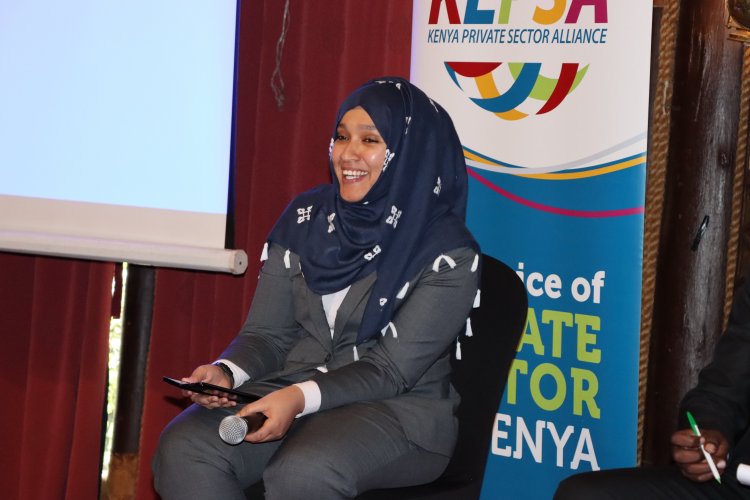 [File image of the Kenya Green Building Society's CEO, Nasra Nanda. Photo/Courtesy]
[File image of the Kenya Green Building Society's CEO, Nasra Nanda. Photo/Courtesy]
Architectural Association of Kenya (AAK) President Florence Nyole said it is important that architects be involved early in planning and policymaking on construction matters to ensure alignment with principles that ensure safety, sustainable energy consumption, and the ability to withstand harsh weather conditions.
“I believe in leaving no one behind. Professionals need to be allowed into the room when policies are made because these policies affect issues on the ground for the green building agenda,” noted Nyole.
Dr. Olufunso Somorin, the Regional Principal Officer at the African Development Bank, called for integrating construction project ideas with carbon credits to earn extra revenue as a motivation for going green.
“Carbon credit must not be your primary source of revenue. It is a behavior revenue meant to change your behavior toward climate-smart investments,” said Dr Somorin.
Shifting focus to Mozambique, a report from the IFC highlighted the urgent need for climate-resilient buildings.
The country faces challenges in implementing a comprehensive policy framework, accessing financing, and relying on imported construction materials.
“There is a promising market and urgent need for climate-resilient buildings in Mozambique,” said Vasco Nunes, IFC Acting Country Manager for Mozambique.
He added: “IFC is working with partners to design policies, programs, and products that will help increase climate financing for Mozambique’s building sector with the ultimate goal of ensuring the safety and longevity of people’s homes and places of business.”
The IFC is actively working to increase climate financing for Mozambique's building sector to ensure the safety and longevity of homes and businesses.
Climate-resilient buildings are those designed and constructed to withstand and adapt to the impact of climate change and other environmental challenges, minimizing damage and ensuring long-term sustainability.
The ongoing discussions on climate resilience, green energy, and construction are crucial, offering hope to informal settlement dwellers in Nairobi and other African cities for healthier living environments.
If you have a real estate press release or any other information that you would like featured on the African Real Estate Blog Post, do reach out to us via email at [email protected]












